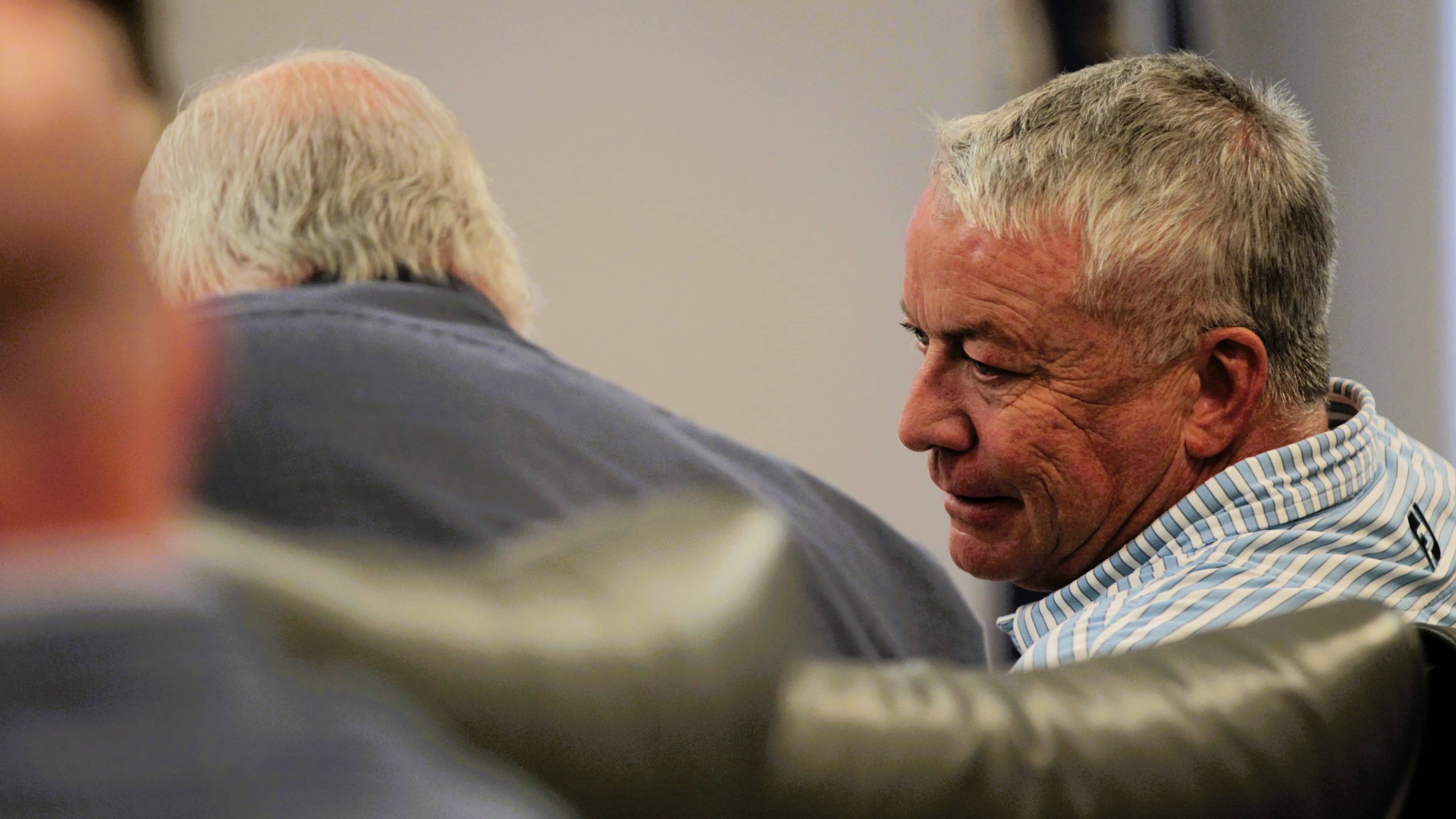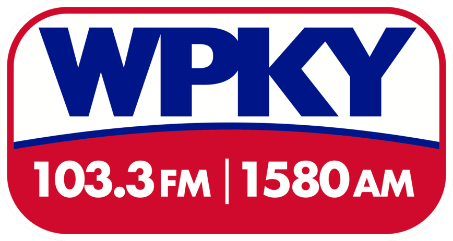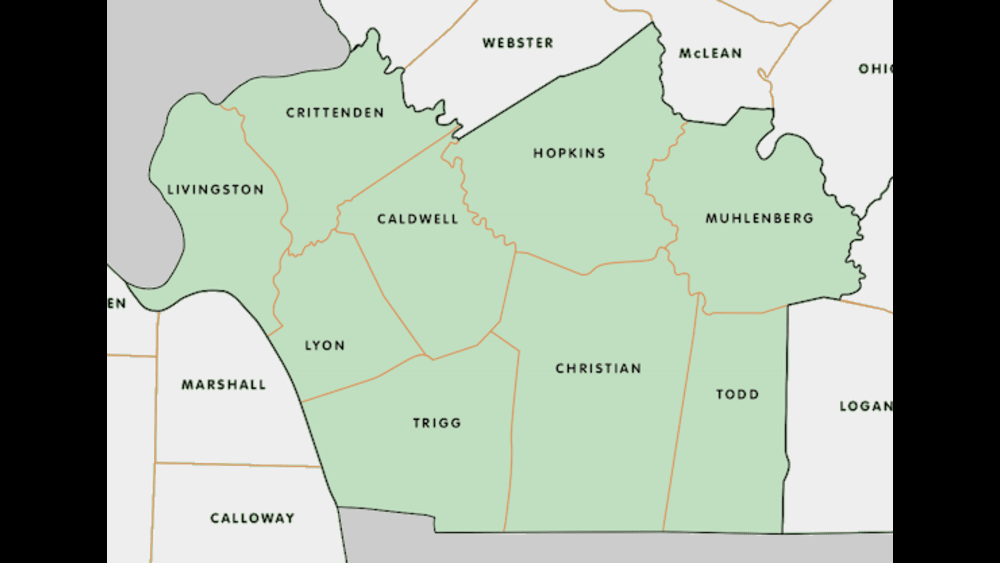
With the January 1 activation date quickly approaching, officials with the Pennyrile Area Development District received a strong rehash of Senate Bill 47 and House Bill 829 Monday afternoon from Kentucky’s Office of Medical Cannabis Director of Education Outreach Alyssa Erickson — who offered some clarity in all of the confusion.
Highly-regulated, she once again confirmed that 48 dispensaries will be dispersed throughout 11 regions — with two extra dispensaries allowed for the populations of Jefferson and Fayette counties.
For the other regions, only four dispensaries are allowed each.
For the Pennyrile, this means two things:
1) Lyon, Trigg, Caldwell, Christian, Todd, Muhlenberg and Hopkins could have up to four.
2) And Crittenden, Livingston, Marshall, Calloway, McCracken, Graves, Hickman, Ballard, Carlisle and Fulton could have up to four.
Furthermore, Erickson said these locations aren’t going to be the stereotype.
With the licensing portal opening July 1, she also noted 16 cultivators and 10 processors will be created in this first wave of commerce — with 10 Tier I growers allowed up to 2,500 square feet, four Tier II allowed up to 10,000 and two Tier III allowed up to 25,000.
In the future, an undisclosed number of Tier IV cultivators will be allowed, up to 50,000 square feet. And as of now, there is no limit to the number of safety compliance labs, which will test the cannabis once its matured.
Among other regulations in the codified law: testing regimen, age restrictions, required surveillance and alarms on properties, as well as the need for physical security and adequate lighting.
HB 829, she said, also fixed a buyer’s loophole that existed in SB 47.
Patient supply limits over 30 days are restrictive, she said, but also effective:
— Four ounces of raw plant material, for teas and baking, but prohibited to smoke
— 28 grams of concentrate, like vape cartridges and nebulizers
— 3,900 milligrams of THC-infused products, such as edibles, pills, capsules, oils, liquids, beverages, tinctures and/or dermal patches
— And an unlimited amount of non-consumable topical products, such as gels, creams/lotions, ointments, cosmetics and soaps
Allotments will be followed through the cannabis medical card, which can be digital or physical, and will cost $25.
Erickson made clear that the 20 or so listed possibilities in the original executive order leading to Senate Bill 47 are actually for considerations of pardons, and that those would remain after January 1, 2025.
This means only a handful of reasons qualify someone for medical cannabis:
*any type or form of cancer
*chronic, severe, debilitating pain
*epilepsy or any other intractable seizure disorder
*multiple sclerosis, muscle spasms and/or spasticity
*chronic nausea or cyclical vomiting syndrome
*post-traumatic stress disorder
One must also be a resident of Kentucky, and have no prior disqualifying offenses.
Trigg County and the City of Cadiz have both opted for public referendum this November. As such, Judge-Executive Stan Humphries had a query about whether a business could make a decision about locating in his jurisdiction, but the public then vote “no.”
If a school allows the use of medical cannabis on school property, the school must include in their policy by December 1:
a) it be administered by a school nurse, or under the supervision of appropriate school staff, or by the parent or legal guardian of the pupil;
b) it be administered out of the view of other students;
and c) create a process for how a school nurse or other staff can refuse to administer or supervise the administration of said medical cannabis.
Licensing Fees
Tier I Cultivator (up to 2,500 square feet): $12,000 initial license fee; $12,000 annual renewal
Tier II Cultivator (up to 10,000 square feet): $25,000; $25,000
Tier III Cultivator (up to 25,000 square feet): $50,000; $50,000
*Tier IV Cultivator (up to 50,000 square feet): $100,000; $100,000 [not yet available]
Processor: $25,000; $15,000
Dispensary: $30,000; $15,000
Safety Compliance Facility: $12,000; $12,000
Nonrefundable Application Fees
Tier I Cultivator: $3,000
Tier II Cultivator: $10,000
Tier III Cultivator: $20,000
Tier IV Cultivator: $30,000 [not yet available]
Processor: $5,000
Dispensary: $5,000
Safety Compliance Facility: $3,000
For more information: https://kymedcan.ky.gov.
FULL DISCUSSION:








